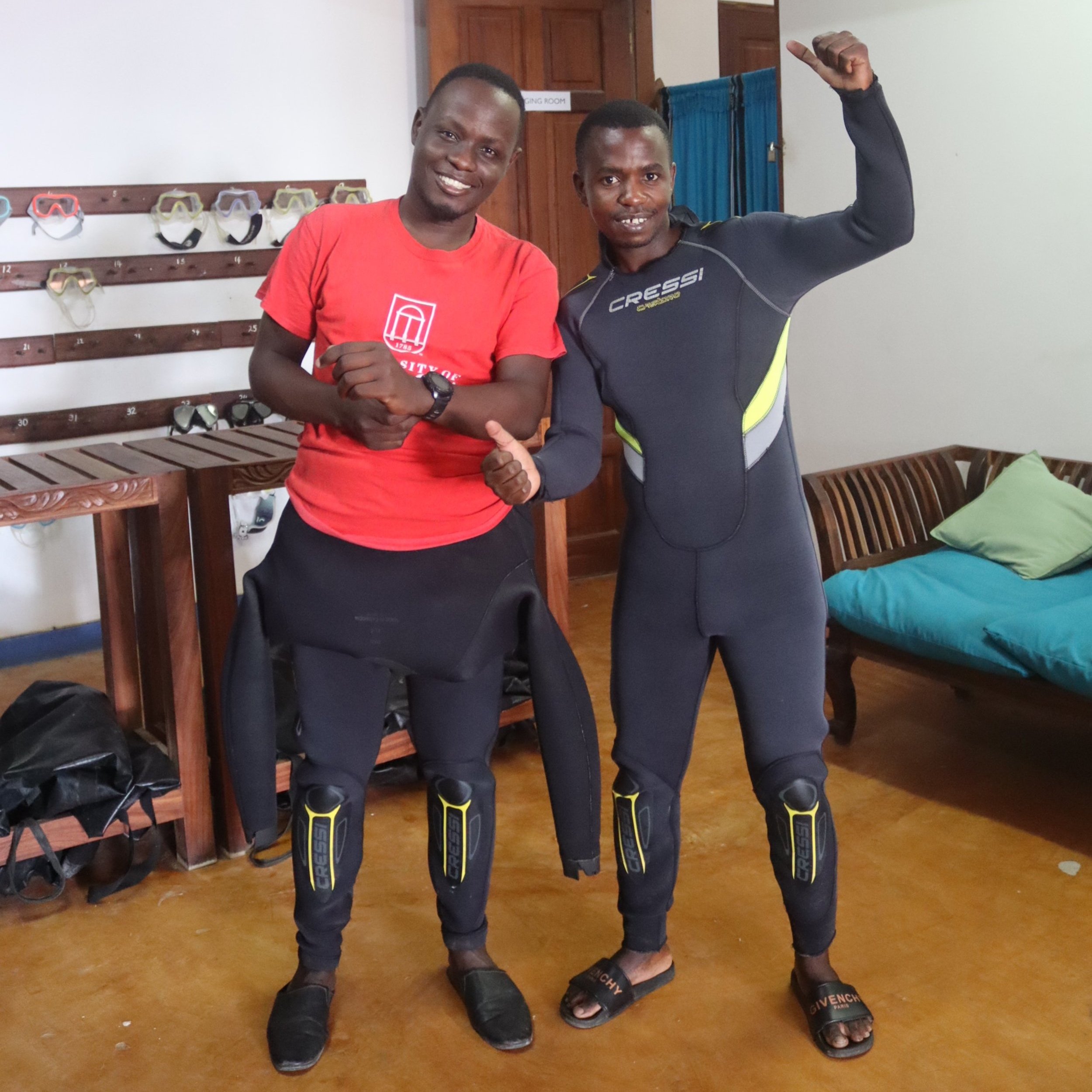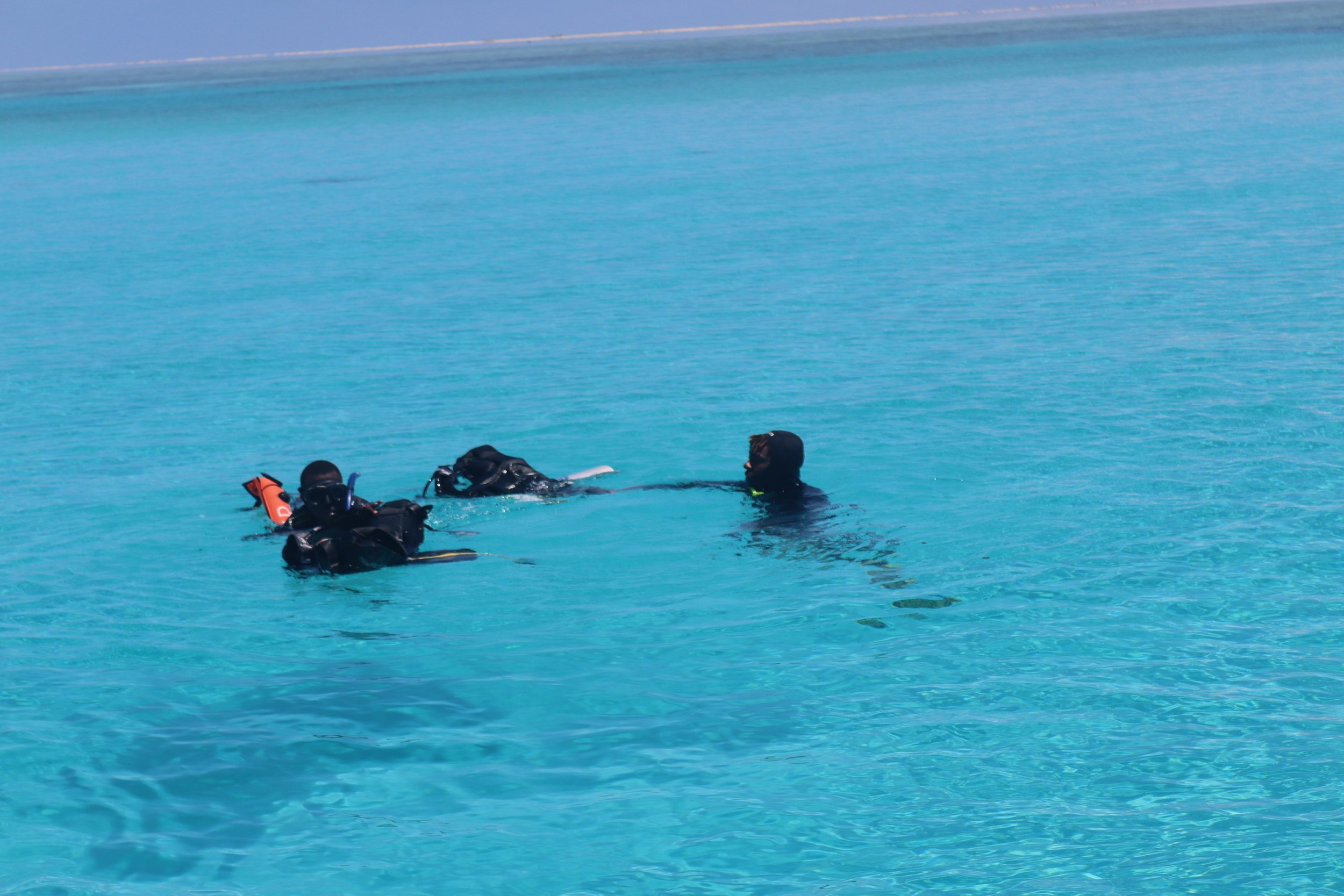A DIVE INTO TANZANIAN WATERS
Diving. A word that seems very foreign to a number of Tanzanians, particularly those on the mainland. The first reaction of many when I told them I was going to film two young Tanzanian men learning how to dive was “Tanzanians diving? How and why?” No one understands why people would want to leave the safety of the shore and enter these deep waters. A lot of us here have grown up in an environment where swimming is not a norm, so when people talk about diving in the ocean it does come as a shock to many.
Two weeks ago, I got to film two brave young men who took necessary steps towards accomplishing their dreams. Jerry Mang’ena and Bernard Kaitira are marine biologists working in the field yet had spent years not being able to fulfill their full potential because they had been limited to not being able to dive into the ocean. They had spent most of their time on the shore and shallow waters exploring only what they could see and not what was deep in the ocean realm. Thanks to Nature Environment and Wildlife Filmmakers (NEWF), Jerry and Bernard finally had the chance to do something they never thought they would be able to do.
Off the coast of the beautiful island of Zanzibar, at Scuba Fish Diving Center, the Dive Instructor, Asheli welcomes us and is excited because this is the first time in his career that he is teaching Tanzanian locals how to dive. While he has seen Zanzibar natives take interest in diving, it has rarely been the case for many from the mainland. Majority of his students are usually tourists from different parts of the world. Jerry and Bernard are just as equally excited to begin a new chapter in their lives. They will finally be able to dive and explore the ocean floor and use their education and findings for the benefit of coastal and marine conservation.
They begin with a pool session and as new divers, the boys struggle in the beginning. Bernard, hailing from Tanzania's Lake Zone, has a little more experience with water, but the experience does not entail swimming in the ocean with scuba gear.
Throughout the day they learn new things and as an observer I too learn new things along with them. The instructor, all throughout, is very excited as these are his first students that he can speak both languages (Swahili and English?)fluently with. As the day ends, the men sit and reflect on how it went and are excited for their first open water dive in the morning.
As first-time divers heading out to the boat that will take them to experience their first dive, both men look extremely nervous. A large part of the boat ride is in silence - each of them lost in thought and most likely thinking about how this will all turn out.
As I watch them gear up, ready to jump in the water, I see both fear and excitement on their faces. The instructor, understanding what the two are probably thinking, does his best to take away any worries while giving them direction on what to do in case of a situation gone wrong. As they land in the water, they struggle a bit to adjust but after a minute they are settled and start the journey down under the water. This first dive takes almost an hour and by the time they come back up they are in disbelief about what they experienced.
Seeing them dive, something even I have not experienced, just tells me how much more effort is needed into having more African divers. As people working with marine life, it is necessary for us to be able to explore our oceans without being limited. The possibilities are endless when one can reach their full capability and is equipped to explore the ocean without limitations. Diving is not something that should be classified as an activity for just a certain group of people. Students doing marine studies should have the chance to learn something that will benefit their future. I believe Jerry and Bernard's experience will be the beginning of a new story for not only them but for every other Marine Biologist in Tanzania looking to conserve our ocean.
By Catherine Nchimbi






